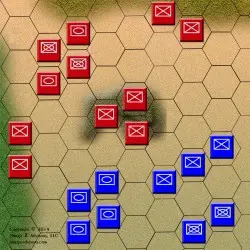Board War Games Superior to High-tech Simulations
 Computer games have all but wiped out regular board games. Why then, do American military officials rely more on board games to analyze military strategies than on computer simulators? More pertinently, what are the business implications?
Computer games have all but wiped out regular board games. Why then, do American military officials rely more on board games to analyze military strategies than on computer simulators? More pertinently, what are the business implications?
“War Games” (The Economist, March 15, 2014 edition) highlights three reasons for the preference of board games over computer simulations:
- They foster the critical but creative thinking needed to win (or avoid) a complex battle or campaign.
- You can constantly tweak the rules to take account of new insights.
- [They] can also illuminate the most complex conflicts.
As the movie, The Matrix, entertainingly made clear, computers run on rules (timestamp 0:12-0:30), so while the U.S. military uses computers to predict outcomes “for ‘tight, sterile’ battles” with certain rules and events, they aren’t forgiving when you want to tweak the rules based on alternate approaches, hypotheses and interpretations. In other words, computers are good when we need to think inside the box, but they confine us when we need to venture out.
For our businesses, there are four implications:
- Computers can overwhelm us with data rendering us indecisive without adding anything to creativity and innovation.
- Since computers’ rules form a programmed thought process, we can change our thought process, a creative thinking technique, by avoiding the computer.
- Relying on computers retards our skills, so strategizing without them will keep our problem-solving skills sharp.
- Quantification is almost inherent in computers, but thinking more quantitatively will likely retard our creativity even more.
Of course, this doesn’t mean avoiding computers but rather becoming smarter on how we employ them. Again, they help much when rules and information are certain. For more complex and creative approaches though, simple notes and sketches on a napkin are likely better.


Pingback : Board War Games Superior to High-tech Simulatio...